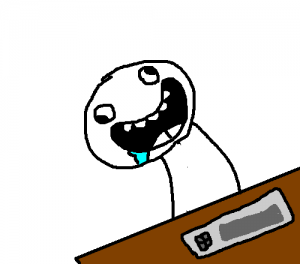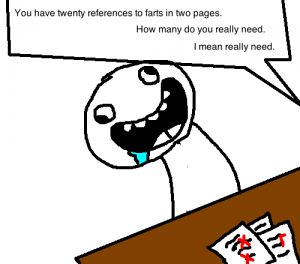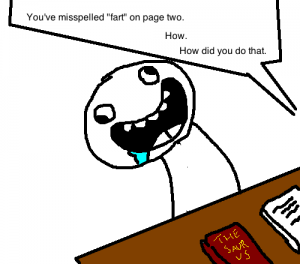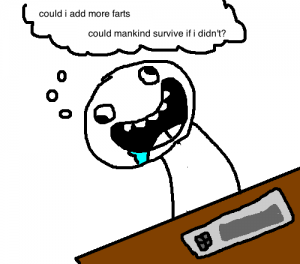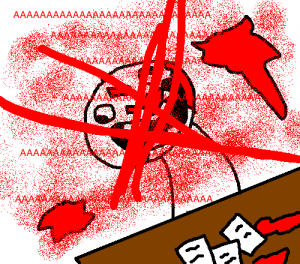So, you’ll note I’ve been absent for a bit.
There’s not a tremendous amount of excuse to it save for the fact that, surprisingly, getting a book ready to go into print can be pretty difficult stuff. Hence, these past few weeks have been putting the finishing touches on The Skybound Sea. And, as such, I’ve detailed the editing process below.
STEP ONE: FINISHING THE BOOK
This is where the real editing gets started. Your relief at finishing the book is immediately counteracted by the certainty that you have just written seven hundred pages of complete nonsense. This is confirmed as you peruse through it, turning each error and clumsy sentence into a scourge with which to flagellate yourself. Your beta readers tell you it’s great, your sentences hold up under scrutiny and your editor likes it, but you know it’s bad.
You…you just know.
STEP TWO: LINE EDITING
Your editor chokes back the bile you’re certain he feels for you (even though he keeps buying you drinks and telling you you’re awesome) and sets to work finding the most glaring errors and telling you what works and what doesn’t. And even though he says it’s all really good and doesn’t give you a lot of notes, you know that’s because it’s so horrible he actually went blind halfway through and didn’t want to impose upon you. Never mind that he’s got awards for editing and actually knows a good story when he sees one and that publishing a terrible story would be very bad for his business. He’s just too nice to tell you how bad it all is.
STEP THREE: COPY EDITING
The copy-editor is a person who is around to remind you that you once wrote a sentence that read: “He smelled all of her smells and felt himself a blood.” She will mention this, maybe once, and then you will never forget it. Of course, weird sentences come to everyone, especially when you work late at night, and even though you know what you meant and can correct it instantaneously, you know in your heart of hearts that this sentence is your subconscious returning to torment you.
STEP FOUR: GALLEY EDITING
Galley editing is your last chance to change anything in the manuscript. It comes after three rounds of editing and you can make only minimal changes. This is roughly the point when you want to change everything.
STEP FIVE: THE AFTERMATH
Everything is set as well as it could be. You calm down, have a drink, maybe take a day to reflect on what’s gone on thus far, and realize that your self-criticism is actually your quality survival instinct. In the same way that we possess suspicion and wariness of strangers as a matter of instinct, your senses as an author will scrutinize and analyze everything you’ve done. And since you’ve begun from a position of passion, energy and strength in writing this, sniffing out weaknesses and finding out what experiments didn’t work is the logical path to improving as a writer. You quietly accept that what you wrote initially is the product of hundreds of mistakes you’ve made before and, after three books, you’re actually pretty good at what you do and the next book will be even better because of it.
And then you put your drink down, open up a new document, and begin writing something you’re going to hate a year later.
In all seriousness, we have just finished the final pass on The Skybound Sea, with the help of our very good reviewer, Mariel Bard. It’s taken some time, but we finally did it.
In contest-related news, I’ll be announcing the winners of the writing-portion later this week.
IF YOU ARE AN ARTIST, PLEASE CONSIDER DOING AN ENTRY FOR THE CONTEST. We’ve gotten a few, but I must have more. The ones that have come in thus far are really neat, but I really hope I have more to show off. And thus, I hope that you’ll consider submitting a piece of work. A few people have asked for an extension, so I’m pushing the deadline back to mid-end July. Hope to see your entries soon!
Thanks! And have yourselves a nice day!
